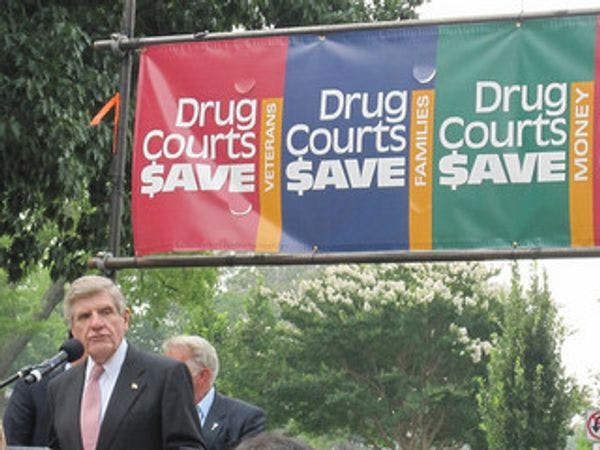A well-intentioned, deeply flawed approach to drug treatment
By Joanne Csete & Denise Tomasini-Joshi
It seems like a great idea on paper: stop filling prisons with people convicted of minor, nonviolent drug offenses, and instead, put those people into treatment for drug dependence that is overseen by special courts.
In these courts, defense attorneys and prosecutors would drop their usual adversarial roles and work together with judges and other court staff to be a “support team.” By dealing with the addiction, the courts would get at the “root cause” of crime and prevent recidivism, thereby avoiding the high cost of incarceration.
The United States has made drug courts a high priority, both domestically and as a central element of its foreign policy, encouraging other countries to adopt them. But when it comes to how useful or effective drug courts are, the devil truly is in the details. A recent report by the Open Society Foundations, Drug Courts: Equivocal Evidence on a Popular Intervention highlights the points to watch out for.
After 25 years of drug court experience in the United States, a substantial body of evidence suggests that these courts can do more harm than good. First, drug courts should ideally be working very closely with health professionals, who would make medical decisions about the nature and duration of treatment. But many accounts from across the country indicate that drug court judges are often swayed more by their own sometimes uninformed prejudices about treatment than by the views of clinicians.
Click here to read the full article.
Keep up-to-date with drug policy developments by subscribing to the IDPC Monthly Alert.
Topics
Regions
Related Profiles
- Open Society Foundations (OSF)
